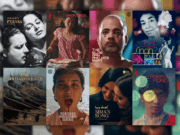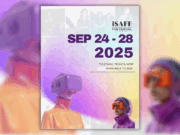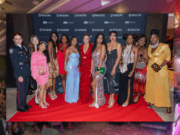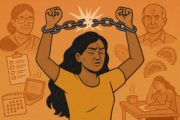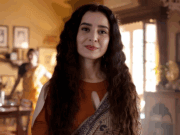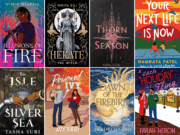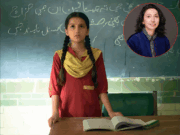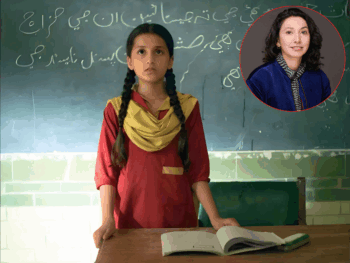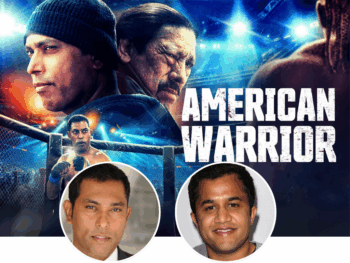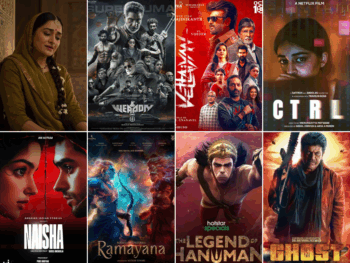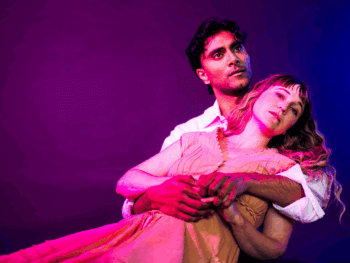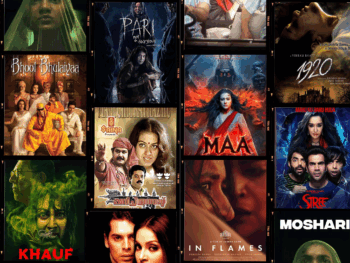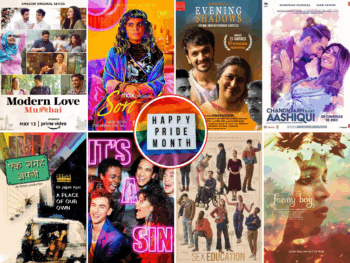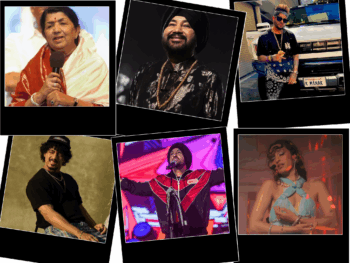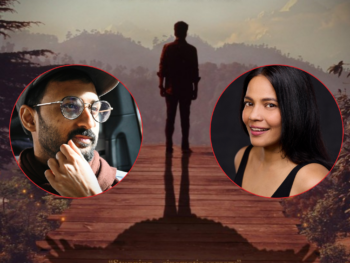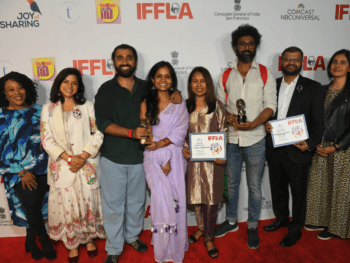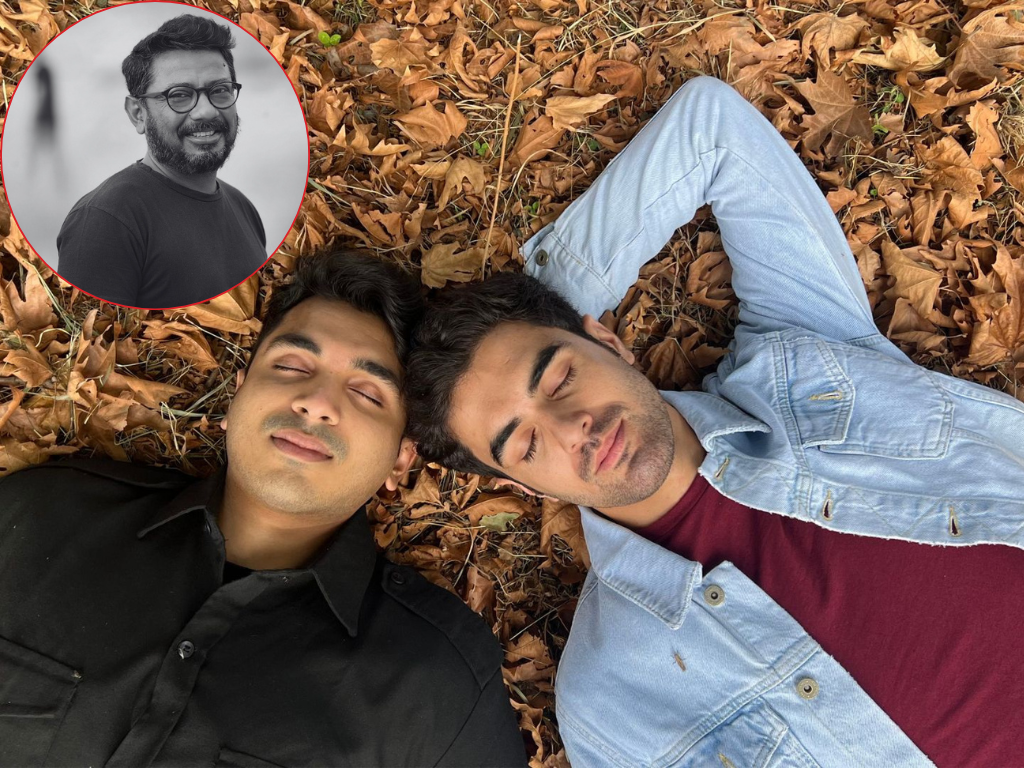
Exclusive Chat With Director Onir On “We Are Faheem & Karun”: A Queer Kashmir Love Story
Entertainment Sep 26, 2025
We Are Faheem & Karun, directed by acclaimed filmmaker Onir and backed by Deepa Mehta, is making waves on the international festival circuit and will be showcased at the prestigious International South Asian Film Festival (iSAFF) on September 26 at Landmark Cinemas Guildford. Set against the cultural backdrop of Kashmir, this moving LGBTQ+ love story is already garnering global attention for its bold narrative and sensitive storytelling.
The International South Asian Film Festival (iSAFF) has recently unveiled its 2025 program, taking place from September 24 to 28 in Surrey, British Columbia. Celebrating its 15th year, the festival has announced the theme of “Legacy” – described as both a recognition of South Asian cinema’s enduring impact and a reflection of iSAFF’s own journey. The theme extends to honouring cinematic traditions while embracing new stories and perspectives that expand the legacy of South Asian narratives worldwide.
Ahead of the film release on September 26th at 3 pm, I had the opportunity to sit down with the acclaimed Indian director Onir for an insightful conversation about the film.
Catch my complete conversation with Onir, and make sure to experience We Are Faheem & Karun.
Our Exclusive Chat With Onir
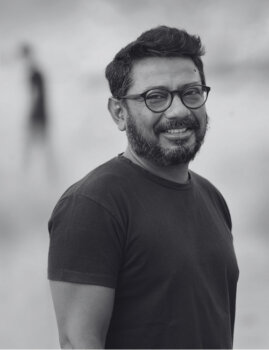
Mehak Kapoor: Hi, Onir! Congratulations on We Are Faheem & Karun!
Onir: Thank you, Mehak, for having me!
Mehak Kapoor: I must begin by saying that I have been a big admirer of your earlier films, Bas Ek Pal and My Brother…Nikhil. Thank you so much for the iconic song Tere Bin, oh my God, that one truly touched the soul. The songs from Bas Ek Pal still resonate deeply and continue to echo in hearts even today.
Onir: We just completed 19 years of Bas Ek Pal. Thank you so much!
Mehak Kapoor: To begin, could you tell us what We Are Faheem & Karun is about and what moved you to bring such an intimate yet bold story to life in Kashmir?
Onir: So, We Are Faheem and Karun is actually a sequel to my National Award-winning film, I Am. After the 2018 Supreme Court verdict, I wanted to make a film that would serve as a tribute in the same spirit as I Am, which was about identity. But this time, I wanted to create four stories, each exploring different aspects of LGBTQI+ queer lives, which together would form a whole. We Are Faheem and Karun was one of those four stories, inspired by the real story of an army major.
For me, it was important to highlight that despite the Supreme Court verdict in India, the army still does not accept the queer community. You cannot be open about your identity, and if you are open, you cannot serve in the Indian army. Any place that does not accept my identity as equal is not okay with me; I will challenge it, I will question it. We have spent our entire lives trying to find equality before the law and in society, for no reason. Sometimes I wonder why we had to fight for so many years. The basic problem is not us. The problem mainly lies with cis-heterosexual men, because they are the ones who decide what others should or should not do, whether it’s women, whether it’s queer people. A set of men mostly decide the rules and laws, driven by their own insecurities and their need to hold on to power.
When I heard about Captain Suresh’s story, I wanted to make a film about a love story between an army person and someone from Kashmir. One of the other stories in I Am was also set in Kashmir, so I thought it would be interesting to continue exploring that backdrop. Both Faheem and Karun come from spaces where they have to be invisible as individuals. They are not fighting to accept themselves; they already do. But it is the society around them that refuses to accept them: Faheem, because of his religion as a Muslim, where acceptance is not easy; and Karun, because of his role in the army.
Unfortunately, in India, if you want to portray anyone from the army, you have to get approval from the Ministry of Defence. My script was immediately rejected. But what was interesting was that three months later, the story was discussed in Parliament. For me, that was a beginning. For a film and its theme to be discussed in Parliament means change is on the horizon. And I believe we will get there someday soon.
Mehak Kapoor: Right…
And so I did some cosmetic changes. I just made him into a security person because otherwise I couldn’t do it. I simply changed the costume and made him a security person. The story remains the same, and it stands as a metaphor for what we seek as human beings: the right to serve our country, because I love my country just as much, and I should have the same right as everyone else.
So that was the basic inspiration for doing it. And then I decided, instead of making it part of an anthology, to turn it into a separate feature film. Because when someone tells me “no,” for me, that becomes a reason to make it even bigger.
Mehak Kapoor: So I mean, you have faced challenges, of course, but shooting in Kashmir often comes with both logistical and social challenges, as we all know, right? So, how was your overall experience filming there, and how did the local community respond to your team and the story you were bringing to life?
Onir: I’ve been going to Kashmir for the last 20 years. I’ve learned a little bit of the language, and I interact a lot with the local people. I often live with locals instead of staying in hotels. I’ve always been open about my identity, and sometimes I’m amazed at how much I’m accepted there. I conduct workshops for students, and they love me. At times, I wonder if I’m being too skeptical when I think that maybe I’m accepted and loved because I’m still seen as an “other,” someone not from within. But then I also feel that perhaps I’m overthinking it; I don’t really know.
When we were shooting, I received so much help from the locals. It was striking, whether it was people from the administration, the Indian army personnel stationed there, or the residents; everyone helped me. I didn’t have to hide. I didn’t hide the story. I shot in an extremely remote place near the border, called Gurez, and even now, so many people from there message me on Instagram. Every time I mention that I’m travelling to Canada, to Surrey, they ask, “But when do we get to see the film?” I tell them, “Very soon,” and they are fully aware of what the film is about.
This, to me, is what I hoped to achieve: that through my film, more people would open up to listening and understanding. Acceptance is not so difficult; it shouldn’t make you feel insecure. It should make you feel like a better person, a more beautiful person, because you are giving someone else happiness.
Mehak Kapoor: That’s great to know!
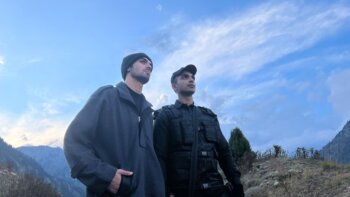
So We Are Faheem and Karun has already been making waves, right? People are loving it, as you’ve already talked about it, too. And also making waves at international festivals. How has the global audience responded to the film?
Onir: My first international screening was at BFI Flare, and I was naturally apprehensive. When I walked in, the first thing that struck me, and also made me question things, was the audience. In the first three days, the tickets for both shows had sold out, and during interviews, people asked me why I thought my film was so popular. I said, “Oh, London has a large South Asian population, so they’ll come to watch.” I also knew it was during Eid, so many Muslim community members would be able to attend.
But when I actually walked into the theatre, about 80% of the audience were non-South Asians. I thought, “Oh my God!” Because the film had gained such popularity, they also organised a one-hour masterclass with me, which was sold out, and the audience was primarily non-Asian. That made me really happy because it showed that the film could connect with a broader audience.
Some people say that audiences don’t know about Kashmir, but in the end, this is just a location. My film is a love story about two people who are not allowed to love. It could be a man and a woman, or people from different castes; it’s ultimately about two individuals whose love is restricted by society for various reasons. At its core, it’s just another love story.
I found it funny and refreshing that at one of the screenings, BFI Flare is one of the oldest and largest film festivals in the world, and someone said to me, “It’s so nice to watch a queer film that isn’t all about sex.” I laughed and thought, “Oh, that’s interesting.” They added, “The way you portray love is really refreshing.”
The next day, while coming to watch other films, people were queuing up and shouting at me, “We want your next film soon! We love you!” As a filmmaker facing so many hurdles in India, moments like these are incredibly empowering. Travelling internationally for film festivals is a reminder that my work resonates beyond my own community.
In the UK, I won the Best Director award at the UK Asian Film Festival. Experiences like these give me energy to keep pushing myself, knowing that people are watching and loving my work. Box office success has never been my main focus, so I don’t get heartbroken over it. Of course, I would feel disappointed if people didn’t like my film; that’s different, but recognition like this keeps me motivated.
Mehak Kapoor: How do you see the landscape evolving for queer stories in South Asian cinema? Are we moving toward wider acceptance, or is there still resistance?
Onir: I feel, unfortunately, that it’s so exhausting. The other day, I was saying that for most of my 45 years, I was considered a criminal in my own country, right, until 2018, and even now, one still has to keep fighting. Then, when you see all the news coming out of the U.S. with Trump’s new laws, you realise that as queer people, we have to be constantly vigilant. Why should that be necessary?
What happens there also reflects in India. DEI funds are being cut, and suddenly, everyone is affected. Corporations that had previously celebrated Pride Month now have an excuse to stop, and their real faces come out. Many people, though not everyone, have just stopped supporting queer initiatives. It’s a constant struggle.
The film industry is part of this larger society, so it reflects the same dynamics. Everything that drives the industry is profit. I come from an industry unlike Hollywood, which balances beautiful independent films supported by stars. In India, that’s rare. We might occasionally have a film like Tarazim, but generally, independent films, especially queer stories, face immense challenges. The moment you approach a big male star, 90% of the time the answer is no.
Mehak Kapoor: Yes, you are right!
Onir: You know, there will always be some other excuse. And as the largest filmmaking country in the world, where are the films? There might be one or two films and maybe a series in a year, and then people say, “Oh my God, it’s happening!” No. I feel we celebrate too easily because life has been so difficult.
But if you really look, you occasionally see a beautiful film like Joyland from Pakistan, which, despite its brilliance, faces so much resistance in its own country while being screened. Similarly, in India, there’s a beautiful film called Sambar Bonda that’s currently travelling. I don’t know how well it will do, but I truly hope it succeeds.
A lot of the time, the primary financing for such films, whether it’s Girls Will Be Girls, Santosh, or Sambar Bonda, comes from outside the country. I feel we are still far from a space where we can confidently say the industry is embracing queer stories. No, it’s not. What the industry embraces is very limited; either films made independently or, if made by the mainstream industry, they are filtered through a very heteronormative lens.
Mehak Kapoor: I know.
Onir: Very male heteronormative, what keeps them comfortable watching, you know, and I’m like, my life makes you uncomfortable, it’s your problem.
You know, but why should those stories not be told?
Mehak Kapoor: I agree with you, Onir. We do see films being made, but when it comes to queer stories, they are very rarely made, rarely talked about, and rarely written. And even when they are made, there’s often a lot of drama and complications surrounding them.
Onir: Yeah, over the top and also stereotyping and all that.
Mehak Kapoor: Exactly, I know what you’re talking about, and also I would love to hear more about the actors of We Are Faheem & Karun. We’ve not talked about that, and how did you find them? And what was it like working with them on such layered roles?
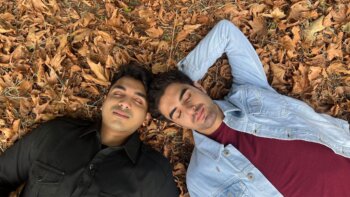
Onir: This also happens to be the first queer Kashmiri-language feature film, entirely shot in Kashmir. There has never been one before. For me, it was very important to cast all Kashmiri characters with Kashmiri actors. That was challenging, but I was determined.
What was nice, despite the challenge, was that a lot of people applied for roles, even though most of them had no acting experience. There was one brave Kashmiri applicant who told me, “I’m gay, you should cast me.” Unfortunately, he wasn’t a strong actor, so I couldn’t cast him. After many auditions, we finally shortlisted Tauseef (Faheem), and I wanted him because everyone at the festivals has been praising the chemistry he shared with the other actors.
For Karun, who plays a Malayali character, I wanted a Malayali actor. Again, there were many auditions, and three actors were finally shortlisted. My first two choices had prior film experience, but when we auditioned Faheem, the best chemistry was with Akash, who played Karun. This was also his first Hindi feature film. So, I ended up working with two newcomers. But I feel that when newcomers get a film, they are incredibly eager to excel and be noticed. For them, the film becomes so important that you naturally get their best performance.
Another interesting casting challenge was the character of the mother, Sanaa. I was struggling to find a Kashmiri woman to act, especially someone authentic, not an over-the-top actress from Jammu. Then I remembered a homestay in Srinagar where I often stay. The lady running it, Sanaa, is wonderful. I called her and asked if she was interested in acting. She said the last time she acted was in school, and with everything that had happened afterwards, it had stopped, but she had always been interested. She also had two sons, the same age as some of the actors, so she was willing to try.
I sent Tauseef, who plays Faheem, along with my assistant, to her with some scenes to practice. I immediately saw she had the potential. We did workshops, and eventually cast her. She turned out to be incredible in the film, and I think her performance is truly remarkable.
Mehak Kapoor: Beautiful. And so tell me, looking back, how do you feel your voice as a filmmaker has evolved from My Brother…Nikhil, to We Are Faheem & Karoon?
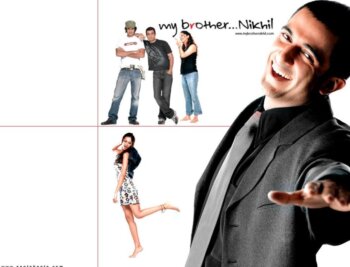
Onir: As a filmmaker, what has really overwhelmed and made me happy is that across the world, when I screen We Are Faheem and Karun, people come up to me and say, “This is your best work.” Earlier, I would always say, “My brother, I need to move on.” But for the first time, I’m hearing people say that, and it means a lot to me. I feel the journey has been very organic.
Even though I’m not only making queer stories, if we look at my queer narratives, I started with films focused on identity. Today, I’ve come to a place where identity and self-acceptance are no longer the central issue; the stories are going far beyond that. Independently making My Brother Nikhil 20 years ago and now We Are Faheem & Karun feels like a full-circle moment. I wasn’t afraid then, and in many ways, I’m still not afraid now.
It’s more difficult today, though. When we made My Brother Nikhil, we got a U certificate without cuts, even while being criminalised by law. Twenty years later, scripts are getting banned. Telling queer stories has become more challenging because society only seems comfortable with certain narratives. State institutions, including festival organisers, often do not want to showcase these films. All queer filmmakers are struggling, not just with theatres or production houses, but also with platforms. Even when platforms support something, it’s mostly about eyeballs, not about the stories themselves.
For example, when I watch series like Paatal Lok, I never think about the characters’ identities; I’m just watching a story. Yet, the street world often frames queer films as “oh, it’s a gay film,” and that bias affects how society consumes our work. They don’t want to confront it, so we end up suffering because of their limitations.
It’s similar to India’s ongoing fight for same-sex marriage. People often say society will crumble if we’re allowed to marry. I ask, “Why would my marriage make my neighbour’s marriage collapse? Why would people be unhappy if I’m happy?” The problem lies with them, not with us.
These challenges have made me more determined and stronger. Twenty years of fighting this battle have left me angry and exhausted, but that anger and exhaustion don’t stop me. They fuel me to pursue my goals with even more passion. At the same time, I sometimes feel sad and frustrated that society hasn’t evolved further. I truly believe people around me can do better, and I struggle to understand why they’re not.
Mehak Kapoor: I think the segregation of “this film” or “that film” creates a problem. We need to stop doing that. When I watch Paatal Lok or any series, I’m not thinking about it as a “straight people’s story”; I’m just watching a story.
Onir: I have never had to think twice if I’ve watched it all day long.
Mehak Kapoor: I agree with you on that because the segregation is really painful.
Onir: I don’t even believe when people say, Oh, women-oriented, what is women-oriented?
Mehak Kapoor: What is women-oriented? That’s what I have a question about.
Onir: If the audience is women, 50% of the world’s population, then you’re just watching stories. Women are not defined by the men around them; they are full, independent characters. And yet, we never hear people say “men-centric film.” Why is it that stories about men are just “normal,” but stories about women, queer people, or other issue-based narratives are labelled as “women-centric” or “queer-centric”? Why is the biggest issue always them?
Mehak Kapoor: Yes, the segregation and labelling need to stop.
When audiences walk out after watching We Are: Faheem & Karun, what feeling or message do you hope stays with them?
Onir: I hope that, for straight audiences, the film shakes them enough to be a little kinder, to lend their voices, and to realise that all they are doing is depriving people of love, and that’s not a good thing. I also hope it encourages them to look at people with empathy. We Are: Fahim & Karun is not just about two queer individuals; it’s also about the people of Kashmir, the people serving there, and everyone in certain circumstances. The film asks viewers to see everyone as human, with their own struggles.
For queer audiences, the film shows that barriers can be overcome. Someone once told me it’s impossible for an army man and a Kashmiri local to fall in love. I said, “Nayoka.” That’s the difference in perspective: straight people often accept the walls society builds, but as queer people, we have always been othered. We don’t believe in those walls; we look beyond them to find connection, love, and understanding.
I also feel women understand this more than men. If the world had more women and queer people in positions of power, I believe we wouldn’t see the kind of violence and killings happening across the world today.
Mehak Kapoor: As a filmmaker, you have often chosen stories that challenge societal norms. What keeps you motivated to push these boundaries?
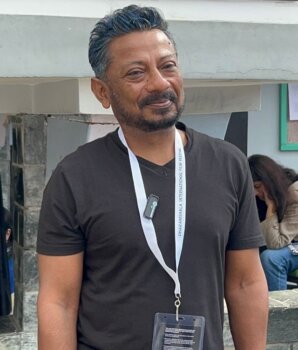
Onir: I feel that, for me, my struggles go beyond queerness or being in the minority. I have empathy for everyone who is marginalised or facing injustice. It makes me realise that I’ve been gifted with a voice, and to remain silent would be a crime. I will not stay silent. I believe this gift comes from my parents, who have always encouraged me to speak up. What keeps me going is the understanding that if I remain quiet, I will stop respecting myself.
Mehak Kapoor: Finally, what is next for you in one year? You are an amazing filmmaker, we all know that. Very intelligent, we know that you see yourself continuing to tell deeply personal queer stories, or you’re also looking to explore new directions?
Onir: I have actually, if you really look at my filmography, more than 50% of my films have not been queer.
I’m exploring various aspects of relationships right now. I’m working on a series, which is an investigative project based on the Pulwama blast, and I’m really excited because it’s a new genre and my second project set in Kashmir. I’m approaching it with a fresh perspective, which is very energising.
I’m also working on a romance called Driving Lesson. It’s a love story between a girl learning to drive, who comes from a particular class, and her slightly younger driving instructor. The story explores how society complicates class dynamics, but it does so through humour and romance.
Apart from these, I’m continuing with the four interconnected stories of We Are Faheem & Karun, which were originally meant to be a series of four films. I want to complete the other three films in this series. I like staying active and involved in multiple projects, so this keeps me motivated and creatively engaged.
Mehak Kapoor: Thank you so much, Onir, for speaking with me and sharing your stories!
Onir: Thank you, ANOKHI LIFE and ANOKHI Uncensored, for talking to me. I actually really love the word “Uncensored,” because I feel it’s something that should be cherished and celebrated.
Thank you, ANOKHI, for doing that, and thank you for having someone who defies being censored as your guest. It’s very special. I’m looking forward to being in Surrey, and I hope the audience reading this will come for the screening. I’ll be there.
Mehak Kapoor: Thank you so much and congratulations once again, Onir.
Now, let’s dive into some fun and frolic rapid-fire questions!
Mehak: You are aware of…
Onir: How unfair the world is towards the queer community.
Mehak: You’re fearful of?
Onir: Losing people I really love, I feel loss is that’s the only loss that really shakes me up.
Mehak: You are angered by…
Onir: Injustice, discrimination.
Mehak: You are in love with?
Onir: The idea of love, and what you might call elusive love, is what I’m always exploring. As for the best art, I believe making films is my strength.
Mehak: You are shy of?
Onir: Uhhhhhhhhhhhhhhhhh I’m shy of beating my own drums.
Mehak: You are always ready for?
Onir: Shooting!
Mehak: What is exciting for you?
Onir: Oh, I love something that I find really exciting is trekking. Trekking? Yes, and the Himalayas.
Mehak: Oh, you’ve done that?
Onir: I’ve done a lot of trekking in Kashmir, especially the fantastic Great Lakes Trek. Being at the top, right on top, overlooking all those lakes, is life-changing. You feel so small, and you realise how much energy we spend fighting over things that ultimately don’t matter. The beauty of the universe is overwhelming, expansive, and it makes you feel like letting go.
Mehak: Oh, I so feel you on that. I could just imagine right now myself doing that too.
Okay, what is confusion for you?
Onir: It’s, uh… Oh, that’s the most difficult question. I’m trying to figure out. I think I’m very often, yeah, I think I’ll be honest about it. I’m often confused about when someone tells, shows interest, romantic interest in me. I’m confused that this person is in love with me because of the person I am, or is it my identity as a filmmaker that the person is in love and it’s very confusing. And sometimes it really is hurtful because you just don’t know, and you want to know, and you wanna be loved for being who you are. Of course, your film, after makeup, is a part of your identity, but that’s not everything to do with me.
Mehak: What is peace for you?
Onir: Peace for all. Oh, God, it’s so elusive, you know, it just, you know, you look around and you just don’t see it, you know, and I feel that it’s become for me, when I hear the word peace, I feel sad, because I don’t see it anywhere. And I don’t know if I’ll see a lifetime, you and yeah, so it’s. It’s a sad word, I feel.
Mehak: And last, what is satisfaction for you, Onir?
Onir: When I look back, especially at my first film, My Brother Nikhil, I realise that all my life, I had this one dream of becoming a filmmaker. I told myself that if I respected what I was doing, I would continue; if not, I would quit. For me, satisfaction comes from looking back and knowing that I’ve stayed true to that dream.
I come from Bhutan, from a teacher’s family, with no financial backing or connections, and yet here I am, doing what I’ve always wanted. Every challenge, every hurdle I’ve faced, feels insignificant because I am living my one true dream. To live the only dream you’ve ever had, that, for me, is the most satisfying feeling.
Mehak Kapoor: Beautifully captured, Onir. It was amazing talking to you!
Onir: Thank you so much, Mehak and ANOKHI MEDIA.
We Are Faheem & Karun
iSAFF Showtime Schedule: Fri, Sep 26th, 3:00 PM @ Landmark Cinemas Guildford Theatre 11
Director: Onir
Screenwriter: Onir and Fawzia Mirzia
Cast: Mir Tawseef, Akash Menon, Mir Salman, Sana Javeid
Mehak Kapoor | Entertainment Editor
Author
Mehak Kapoor (@makeba_93) is an entertainment and lifestyle journalist with over a decade of experience in anchoring and content creation for TV and digital platforms. Passionate about storytelling and factual reporting, she enjoys engaging with diverse audiences. Outside of work, she finds solace i...





